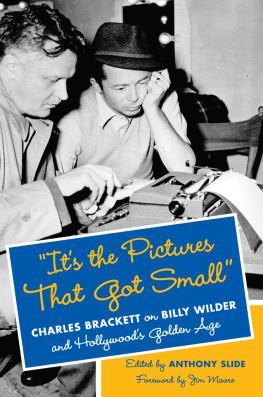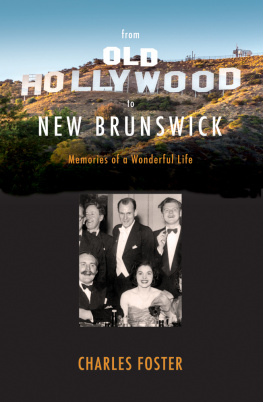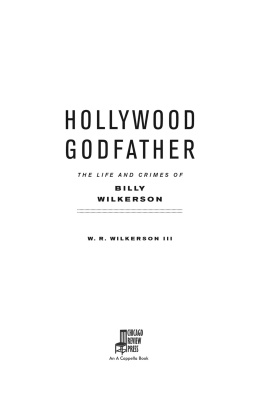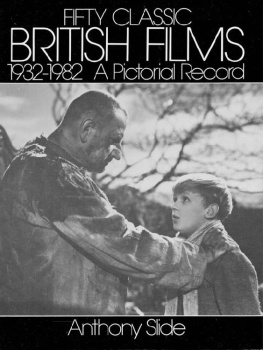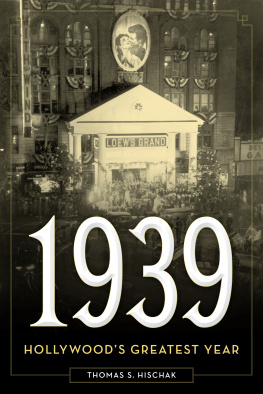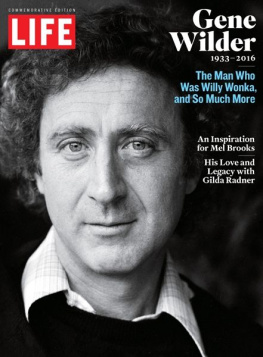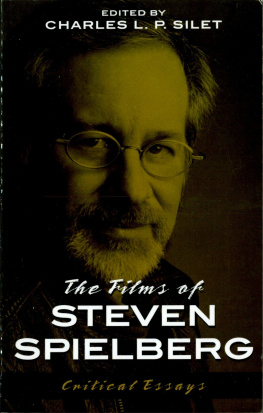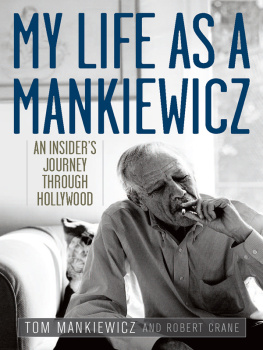Its the Pictures That Got Small
FILM AND CULTURE John Belton, Editor
FILM AND CULTURE
A series of Columbia University Press
Edited by John Belton
For the list of titles in this series, see .
Edited by
ANTHONY SLIDE
Its the Pictures That Got Small
CHARLES BRACKETT on BILLY WILDER and HOLLYWOODS GOLDEN AGE
COLUMBIA UNIVERSITY PRESS
New York

Columbia University Press
Publishers Since 1893
New York Chichester, West Sussex
cup.columbia.edu
Copyright Diaries of Charles Brackett Clifford James Moore III, Victoria Brackett, James Larmore
Editors introduction comments, footnotes, and endnotes 2015 Anthony Slide
Foreword 2015 Clifford James Moore III
Compilation 2015 Clifford James Moore III and Anthony Slide
All rights reserved
Library of Congress Cataloging-in-Publication Data
Brackett, Charles, 18921969.
[Diaries. Selections]
Its the pictures that got small : Charles Brackett on Billy Wilder and Hollywoods golden age / edited by Anthony Slide.
pages cm (Film and culture)
Includes bibliographical references and index.
ISBN 978-0-231-16708-6 (cloth : alk. paper) ISBN 978-0-231-53822-0 (ebook)
1. Brackett, Charles, 18921969Diaries. 2. Brackett, Charles, 18921969Friends and associates. 3. Motion picture producers and directorsUnited StatesDiaries. 4. ScreenwritersUnited StatesDiaries. 5. Wilder, Billy, 19062002Friends and associates. 6. Motion picturesProduction and directionUnited StatesHistory20th century. I. Slide, Anthony, editor. II. Title.
PN1998.3.B713A3 2014
791.4302'32092dc23
[B]
2014015801
A Columbia University Press E-book.
CUP would be pleased to hear about your reading experience with this e-book at .
JACKET DESIGN: Catherine Casalino
References to websites (URLs) were accurate at the time of writing. Neither the author nor Columbia University Press is responsible for URLs that may have expired or changed since the manuscript was prepared.
Obviously, my first and most important thanks must go to Clifford James Moore III, Jim, who trusted me with the major task of editing these extraordinary diaries kept by his grandfather. My thanks also to him and his wife Carolyn for transcribing portions of the handwritten diaries which had either never been deciphered and typed by Bracketts secretary, the incredible Helen Hernandez, or the transcriptions of which had disappeared through the years.
At the Margaret Herrick Library of the Academy of Motion Picture Arts and Sciences, where the papers of Charles Brackett are housed, my primary thanks to Howard Prouty, who went far beyond his responsibilities as an archivist, not only in providing full and unimpaired access to the diaries but also in countless other ways. Also, at the Academy, I would like to thank Jenny Romero, special collections coordinator. At the Writers Guild of America, library director Karen Pedersen and archivist Joanne Lammers were helpful.
It was Santa Barbarabased antiquarian bookseller James Pepper who first impressed upon me the importance of these diaries, and without his enthusiastic support I would not have taken on the editing of them. Additional support and help was provided by Don Bachardy, James Curtis, Lindsay Doran, Robert Gitt, Patricia King Hanson, Larry Mirisch, Sue Slutzky, and Jeff Spielberg.
At Columbia University Press, director Jennifer Crewe, and John Belton, editor of the Film and Culture series, promoted and sustained the project from its beginnings, when I first approached them as to the possibility of publication of the diaries. Also at Columbia University Press I would like to thank Kathryn Schell and senior manuscript editor Roy Thomas.
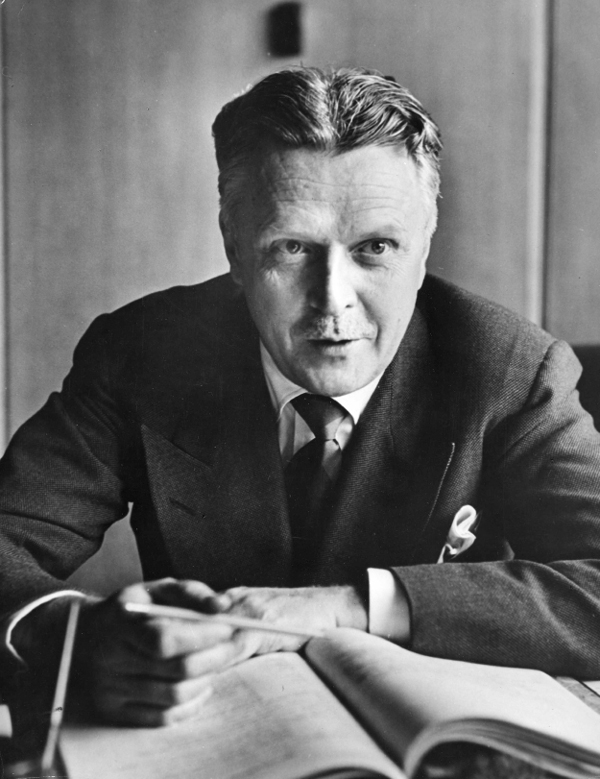
There are few editorial tasks as daunting as the one Anthony Slide undertook at my urging in preparing the manuscript for this book. I am both apologetic and grateful for the three-year journey Tony endured in order to arrive at the terminal station of publication. The original journals materials with which Tony did a wonderful job cover not only a wide chronology1932 to 1949 for this volume alonebut they also encompass a dynamic period of time for the diaries author, my grandfather, Charles W. Brackett. The entries making up this book reflect the fourteen years in which Charlie and Billy Wilder collaborated on some of Hollywoods most formative, if not outright iconic, pictures.
Only Tony Slide, thoroughly armed with his unchallenged expertise in the motion picture industrys history and its personalities, could have been prepared for the arduous task of culling through decades of diary entries. Many of the journals had been transcribed by my grandfathers guardian secretary, Helen Hernandez, but many others were available to Tony and me in Charlies nearly illegible scrawl in fading ink, penned on faintly-lined pages, some of which are now more than seventy years old. Not all years were complete annual records, but most years contained at least two hundred of Charlies daily recollections, many of which are mind-numbingly detailed in quaint phrasing. Yet, in the inimitable Slide manner, the appropriately-chosen, faithfully-preserved diary entries that comprise this book belie any hint of editorial struggle. Tonys scrupulously researched notes add all-important context to illuminate the people, places, and events of a bygone era. To quote an oftfavored phrase of Charlies, Mirabile dictu.
I will leave to Tony the details of the diary entries themselves, through his introduction, exhaustive notes, and cast of characters, all illuminating the motion picture industrys history. That is what Tony Slide does best; his work reflects the deep knowledge and broad understanding of an expert. Having been born in 1949, my own knowledge of my grandfathers business during the years 1932 to 1949 is little better than that of an avidthough admittedly self-interestedfilm aficionado. But I do know the Charles Brackett behind the diariesforever Gramps or Charlie to me. He and I met in Washington, D.C., when I was just a few weeks old, and despite the distances between us as I traveled around the country and overseas as the son of an Air Force officer, we were inseparablebound heart-to-heart, as Charlie was with each of his three grandchildren. The Charles Brackett whose hand illuminated the diaries was not a screenwriter or a producer to me; he was a loving and generous man who was passionate about his star-crossed family. My fascination with the diaries has little to do with the details of Charlies studio lifeparsing those entries is best left to movie industry scholars like Tony Slide. As Bracketts grandson and biographer, my interest lies in better understanding the man behind the diaries, and in that quest I found much in the diaries to inform my sense of who Charlie Brackett was and, more importantly, who he wished to be.
In my youth, Gramps was my biggest cheerleader; in his weekly letters to my motherhis youngest daughterhe never failed to inquire about me, to encourage me, and to send me an allowance generously and specifically designated for fun. Charlie urged me on in my preteens to write and take pictures, knowing more certainly than anyone else in the family that those skills would eventually be the foundation of my lifes work. He lived long enough to see my first story clips and photo credits from a local newspaper in 1967. Though he had difficulty communicating by then, Im told he smiled when he held them. He was also a diehard believer in my academic potential, pouring out an almost endless stream of letters to the admissions officers of his alma maters, Williams and Harvard, while I was still in junior high school, urging them to hold places for me in the classes of the 1970s. One of my few regrets is that I did not meet his expectations on that front; what an honor it would have been to wear those caps and gowns as a Brackett legacy graduate. But, fate has many ways of conferring legacy status on us, and the Charles Brackett diaries are evidence of that in my life.
Next page
